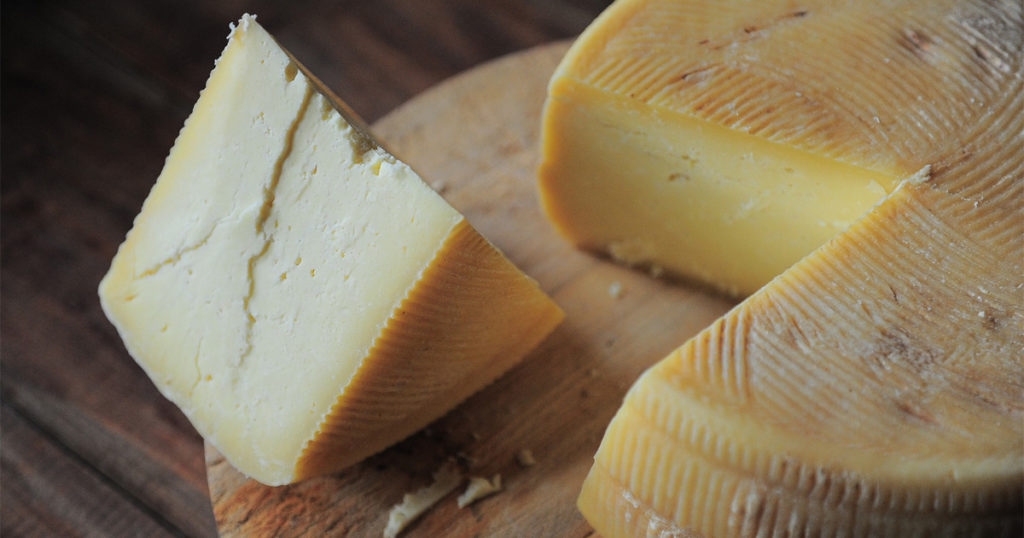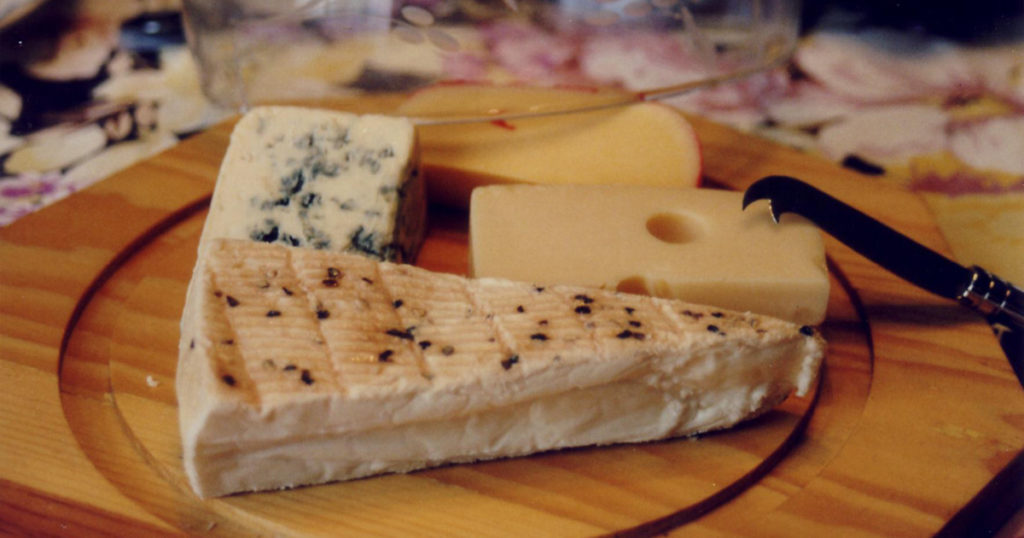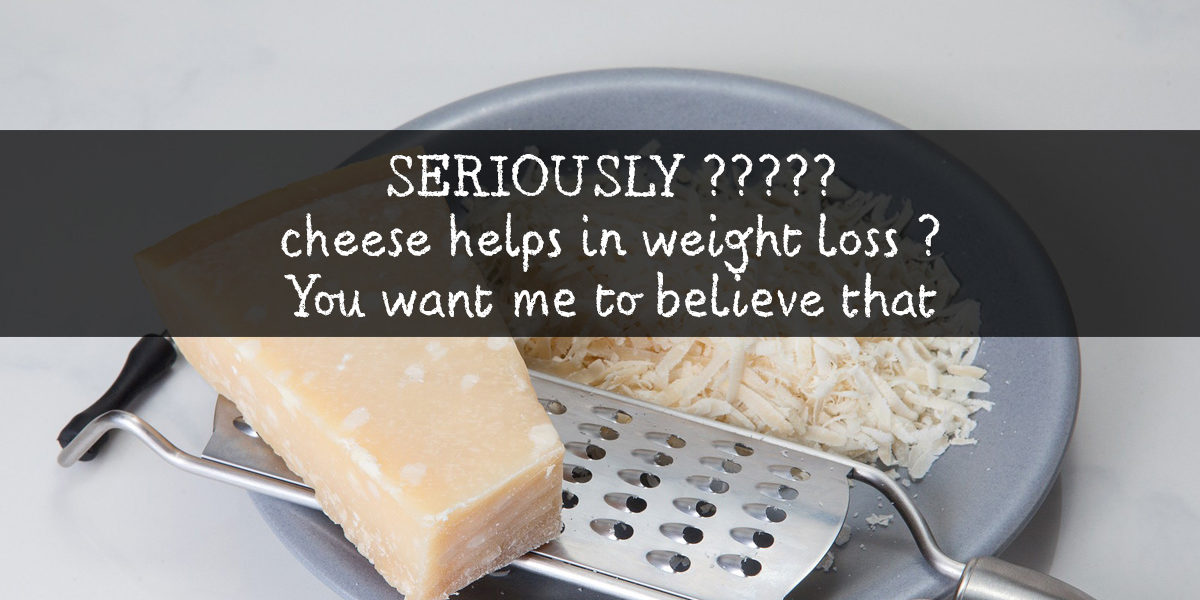Cheese – friend or foe in your weight loss journey ?
How many times you have felt a guilt after having cheese loaded pizzas, sandhwiches or fries ?? The guilt of cheating on your diet. Guilt of having something full of fat.
And what if I told you that cheese can be a healthy addition to your weight loss plan ?? Would you believe me ?
Cheese is a dairy product that comes in hundreds of different textures and flavors. It’s produced by adding acid or bacteria to milk from various farm animals, then aging or processing the solid parts of the milk. The nutrition and taste of cheese depend on how it is produced and what milk is used.

Cheese has a negative stigma attached to it when it comes to weight loss. It’s usually one of the first foods on the banished list. But studies show consuming more than three servings of dairy daily can reduce the risk for obesity and metabolic syndrome. Cheese is also an excellent source of protein, calcium, and several other nutrients but it’s high in calories so you’ll need to limit the amount you eat. The protein in cheese may even help you lose weight by making you feel full and satisfied. Eating cheese help prevent heart disease and osteoporosis.
No matter what type of cheese you prefer, you’ll get at least 6 grams of quality protein in a 1-ounce serving. And yes the protein in cheese supports weight loss. It slows the movement of food out of your stomach so you feel full longer and it keeps blood sugar balanced, which means blood sugar won’t drop and trigger hunger, notes the Harvard School of Public Health. Protein also stimulates satiety by affecting hormones that regulate your appetite, according to research published in the May 2013 issue of the “American Journal of Clinical Nutrition.”
As a dairy product, cheese contains vitamin A, potassium, and is an especially good source of vitamin B-12, which you need to make normal red blood cells and maintain healthy nerves. Cheese is also a good choice for a low carbohydrate diet.
According to a study published in British Journal of Nutrition, people who eat a high-protein, moderate-calorie cheese snack eat less during their next meal. And we all know how snacking adds those calories to the body, don’t we? Women’s Health magazine reports, “Even if you go with a version made from whole milk, you’ll still only set yourself back 85 calories if you indulge in an ounce of fresh mozzarella–many bags of potato chips come in past 200.”
But just reading this I don’t want you to just open the fridge and start eating only cheese. Like I always preach there is a difference between use and abuse. Same way cheese can be an advantage or a disadvantage in your weight loss journey. Not all cheese will help you loose weight you need to know what kind of cheese to be eaten and in what amount. So pls read below as I have elaborated on healthy cheese which ones to include in your diet which ones to let go and also how you can add cheese to your diet and in what portions you should have to reap the maximum benefit from it.

Go for low fat or fat free options
If you enjoy cheese, don’t eliminate it from your diet. Instead limit portions to 1 ounce and buy low-fat or fat-free brands to keep the calories and fat within your daily goals. Fat-free cheese contain no fat, which subsequently reduces the calories by at least half and sometimes more than that, depending on the type of cheese.
Replace mayonnaise with cheese
If you’re in the habit of spreading mayonnaise on your sandwich, then here’s a better option: put cheese instead. One tablespoon of full-fat mayonnaise has 94 calories and 10 grams of fat. However, a tablespoon of whipped cream cheese has 30 calories and two and a half grams of fat–much lesser in comparison to your regular mayo. This small tweak can help you effectively cut down your daily intake of calories. . If you eat sandwiches on the regular, that can add up to some huge caloric savings.
Use feta cheese In homemade salads and pizzas
Feta cheese is a commonly used ingredient in Mediterranean cuisine. It reduces the risk of heart diseases, and also has lower fat content in comparison to other kinds of cheese.
“The tangy flavor goes a long way with just a small amount topped on salads or in a wrap. Moreover, it’s high in calcium to keep your bones strong. You’ll get 14 per cent of your daily recommended calcium in just one serving,” states a report published in journal Centre For Medical Weight Loss (CMWL).
Cottage cheese for a healthier life
Good old cottage cheese, or even our very own paneer, is a good source of protein. If you don’t like to eat regular cheese, you can swap it with paneer. You can add cottage cheese to a bowl of fresh fruits and eat it for a nutrition-packed breakfast.
Say hello to cheddar cheese
If you haven’t eaten cheddar cheese before, it’s time you try it. Not only does it taste amazing, it also makes for a lower-calorie options, and can be used in a lot of different cuisines in place of saturated fats. You can add it to sandwiches or even paranthas as stuffing.
Snack on Fresh Mozzarella, Not Potato Chips
Even if you go with a version made from whole milk, you’ll still only set yourself back 85 calories if you indulge in an ounce of fresh mozzarella (many bags of potato chips come in past 200). Plus, you’ll be taking in more than six grams of filling protein. In fact, in , people who ate a high-protein, moderate-calorie cheese snack ate less during their next meal.

Top Fruit With Ricotta, Not Crème Fraîche
We get it—crème fraîche makes fruit feel more like a dessert. But each ounce packs 110 calories, 11 grams of fat, and just one gram of protein. Part-skim ricotta, meanwhile, contains 39 calories, two grams of fat, and three grams of protein—and it still tastes indulgent.
Adding a bit of cheese to your sandwich instead of mayonnaise is healthier.
The Bottom Line
Cheese is a widely consumed dairy product.
Most cheeses are a good source of protein and calcium, and some offer additional health benefits. In particular, certain cheeses may provide nutrients that promote gut health, aid weight loss, improve bone health, and decrease your risk of heart disease.
However, as some cheese can be high in sodium and/or fat, it’s still worth keeping an eye on your intake.
Overall, cheese can be a nutritious addition to a healthy, balanced diet.
Happy feasting, guys!


